Against All Odds: How Netflix Made It
Home video rentals were already a $16 billion industry when Reed Hastings and Marc Randolph decided to get involved in the summer of 1997. Hastings, who holds degrees in mathematics and computer science, had just sold a software startup he had created earlier in the decade. Randolph was a direct mail and marketing specialist that held an executive-level position at Hastings' software company.
During the acquisition process, the two commuted together from their homes in Santa Cruz. It was during these drives that the concept for Netflix blossomed.
Their million-dollar idea was to build an online video rental service in the image of Amazon, an up-and-coming e-commerce player that was in the business of selling books. Rather than VHS tapes, which were deemed too costly and fragile to store and ship, they banked on a new medium that had debuted less than a year prior called DVD.
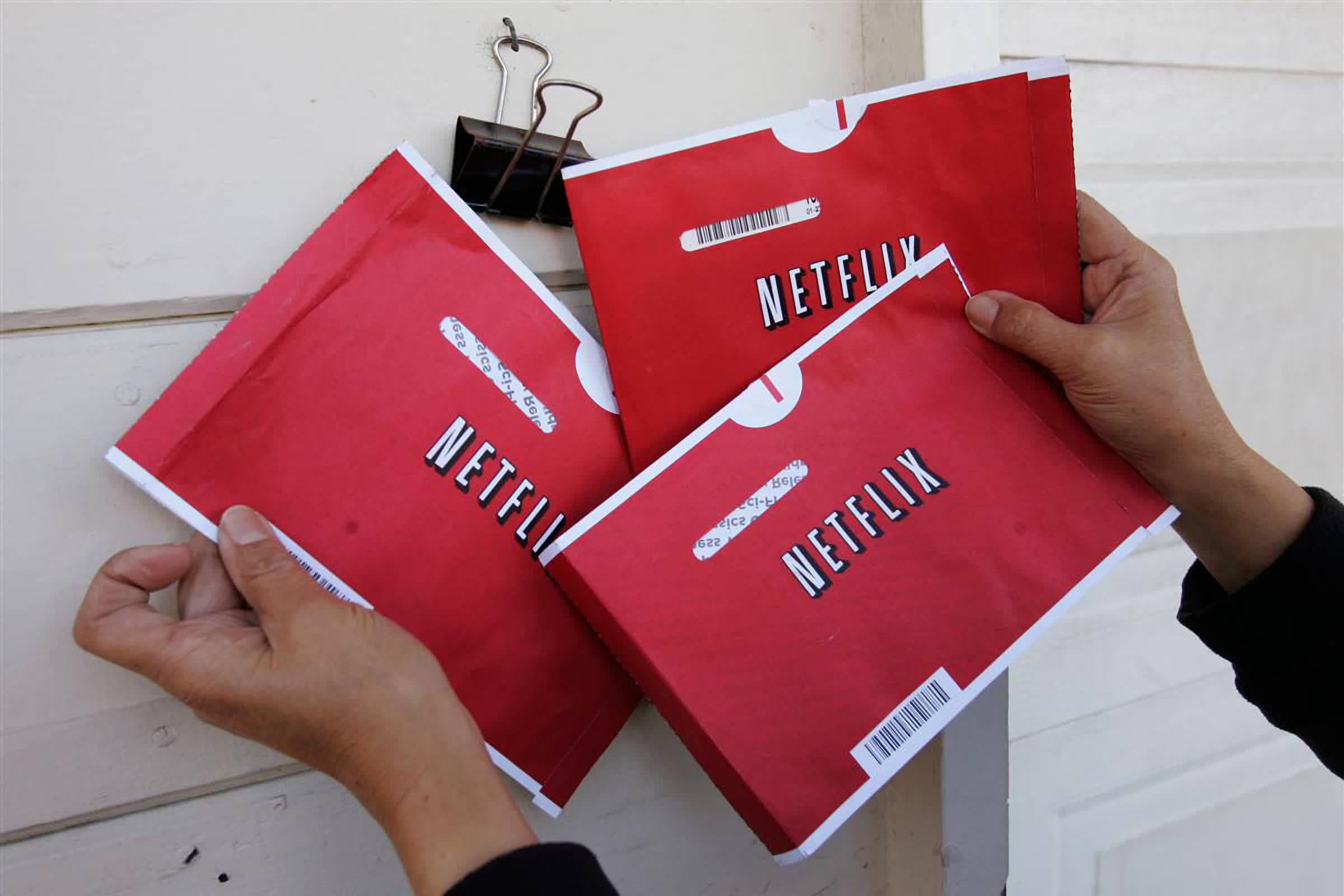
It's a no-brainer in hindsight, but at the time, launching an Internet-based company in hopes of disrupting an industry that had recently been steamrolled by what seemed like an unstoppable force – Blockbuster – was an ambitious undertaking.
Blockbuster had effectively commercialized the home video rental industry over the previous decade, putting many mom-and-pop rental shops out of business through brute force. In short, they were colossal, and independently-owned stores couldn't compete with their vast selection and ability to stock multiple copies of new releases.
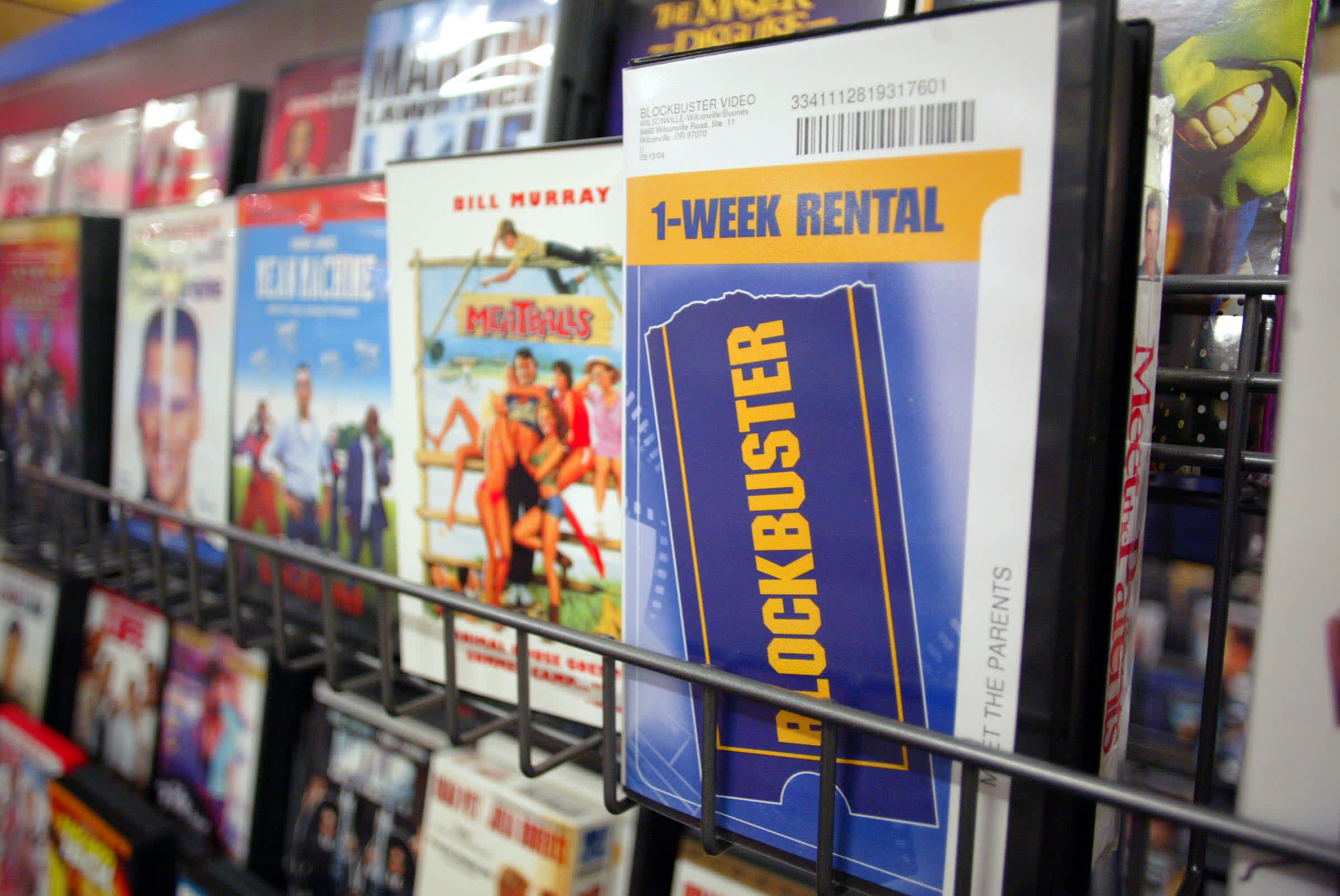
Behind the scenes, however, Blockbuster was dealing with its own issues. Executives were concerned that technological advances, like the growth of cable television and advances in video on-demand services, would negatively impact their business.
If you aren't innovating, you are bound to get left behind. Netflix was doing just that.
After launching one of the world's first online DVD rental services, the company further distanced itself from traditional rental outfits by introducing a monthly subscription model in 1999 and dropping the single-rental model altogether by the following year.
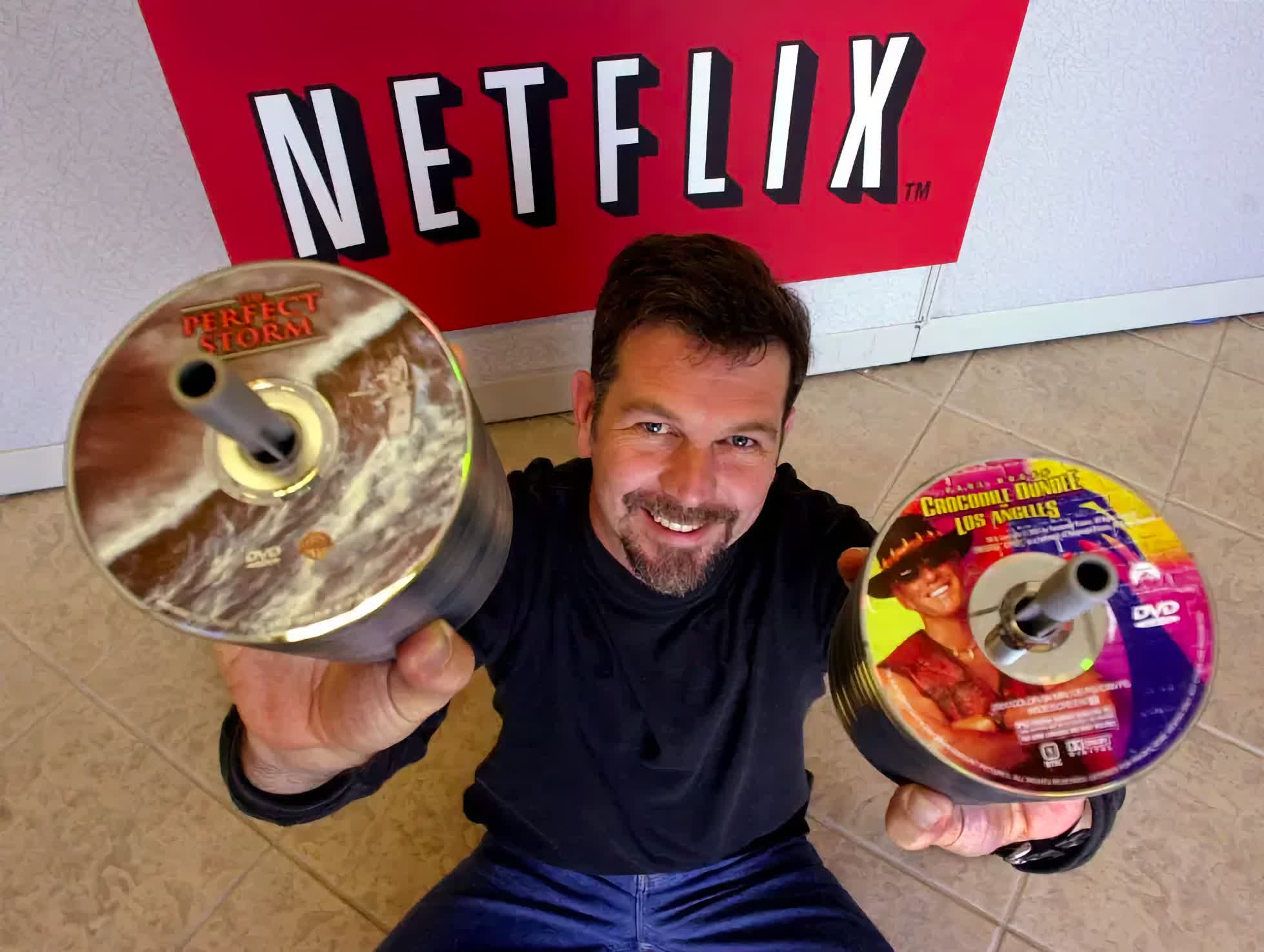
Launching a startup is no easy task, as Hastings and Randolph quickly discovered. By 2000, they had amassed some 300,000 subscribers but even still, the company was on pace to lose $57 million.
Seemingly in over their heads, the co-founders managed to arrange a meeting with Blockbuster CEO John Antioco. The pitch was straightforward: Blockbuster would buy Netflix and let their team develop and run Blockbuster's online video rental arm while Blockbuster would handle the retail stores.
The opportunity, if Blockbuster was willing, would cost them a mere $50 million. But they weren't interested in playing ball, or even entertaining a serious counter offer, and it wouldn't be the first time that Netflix narrowly avoided the chopping block.
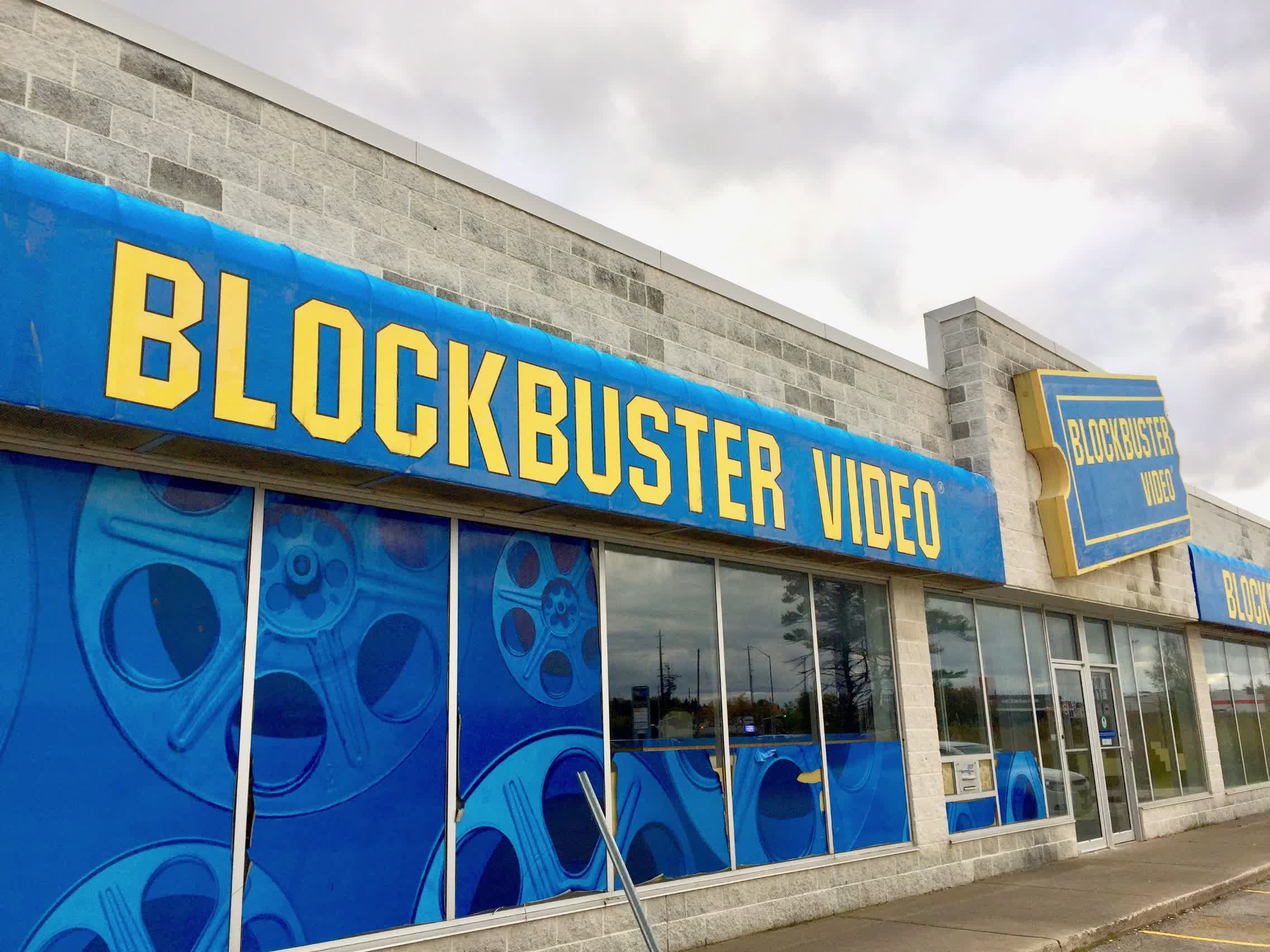
Netflix got back to work. The company continued to grow its DVD rental-by-mail business, benefiting from the falling prices of consumer DVD players. In 2002, Netflix became a publicly traded company. Two years later, co-founder Marc Randolph retired from the business.
Like Blockbuster, Netflix had been thinking a lot about how technology was inevitably going to change their business. Executives had long been interested in the idea of delivering movies over the Internet and by the mid-2000s, the technology was finally in place to make it a reality. The initial plan was to release a branded Netflix set-top box that would download movies overnight and have them ready to watch the following day.
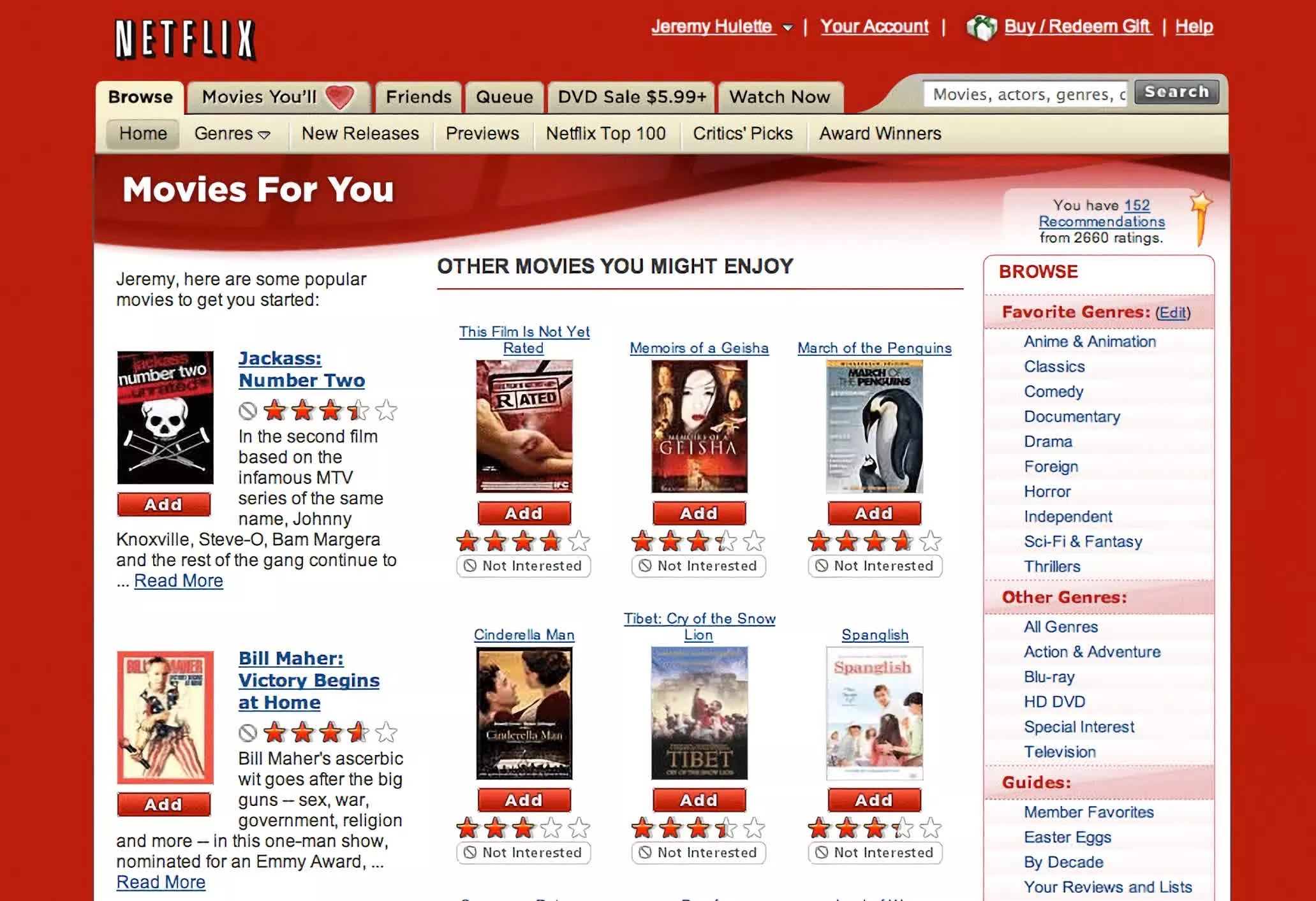
Everything was in place for the rollout, but then YouTube burst onto the scene in 2005. Netflix realized the potential of streaming video and scrapped the set-top box entirely. Two years later, they launched a streaming on-demand service with around 1,000 titles as a complementary perk for DVD-by-mail customers.
Netflix over the next several years would continue to build out its online streaming service by inking additional licensing deals with movie studios and investing heavily in its recommendation engine. Within a matter of months, the company went from being the fastest-growing customer of the US Postal Service to the largest source of web traffic in North America during peak usage hours.
It was no surprise, then, when Netflix unbundled its streaming service from the DVD-by-mail business, offering it as a standalone option for the first time in late 2010. What did catch some by surprise, however, was the unexpected price hike associated with the move. Suddenly, it'd cost 60 percent more if you were interested in both the DVD-by-mail offering and the streaming offering.
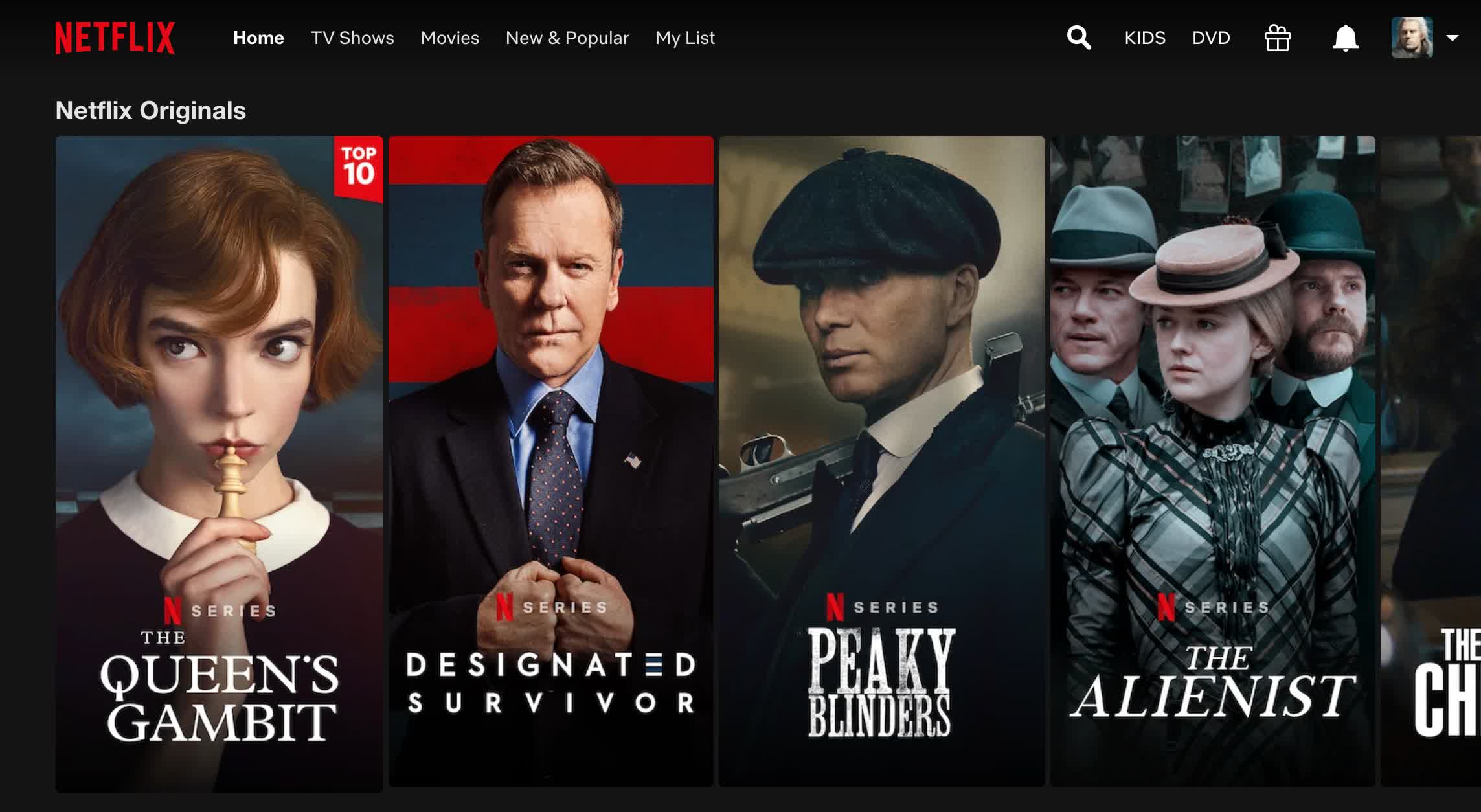
It was a huge misstep that ultimately cost the company around a million subscribers, and it wouldn't be the first flub. In September 2011, Netflix announced plans to rebrand its DVD-by-mail as an independent subsidy called Qwikster. Less than a month later, Netflix walked back the decision and elected to keep the two businesses under the same brand.
It's been mostly home runs and grand slams for Netflix ever since.
Netflix's experiment with producing original content has paid major dividends and become an industry standard and differentiator. From early hits such as House of Cards and Orange is the New Black, to instant favorites like Stranger Things, Ozark, and The Witcher. Netflix has rarely missed in this department. With shows like the CGI-based Resident Evil: Infinite Darkness in the works and the recent pickup of Cobra Kai from YouTube, Netflix's original content portfolio is looking stronger than ever and has forever changed the traditional distribution model.
Streaming is without a doubt Netflix's bread and butter, but did you know that the company still offers DVDs by mail? Netflix brought in $212 million from its DVD arm in 2018 and shipped its five-billionth DVD in mid-2019.
What Netflix has managed to accomplish is nothing short of amazing. In less than 24 years, Netflix went from a scrappy startup to one of the world's largest media companies. As of writing, Netflix reports to have over 195 million paying subscribers around the globe and a market cap of more than $215 billion. Blockbuster, which passed on the opportunity to buy Netflix for a mere $50 million a decade earlier, filed for bankruptcy in 2010.
相关文章

Haider all set for Paralympics Ceremony
PARIS:Pakistan's premier athlete at the Paralympics Haider Ali will be representing the country2024-09-22 预计增产15%,阳春坚果种植省级标准体系搭建基本完成_南方+_南方plus走进阳春市河朗镇省级坚果种植标准化试点基地,工人们正忙碌进行春季管理工作。放眼望去,绿油油的坚果林布满山坡,一串串粉红紫和米黄2024-09-22
预计增产15%,阳春坚果种植省级标准体系搭建基本完成_南方+_南方plus走进阳春市河朗镇省级坚果种植标准化试点基地,工人们正忙碌进行春季管理工作。放眼望去,绿油油的坚果林布满山坡,一串串粉红紫和米黄2024-09-22 本报讯 在连续数日强降雨天气影响下,震后地质灾害呈现多发趋势的宝兴再度出现险情。昨10)日下午5时许,宝兴县穆坪镇沙湾头烈士陵园所处山坡发生一起山体整体滑坡,垮塌方量初步预计约为7千方,造成山下1栋房2024-09-22
本报讯 在连续数日强降雨天气影响下,震后地质灾害呈现多发趋势的宝兴再度出现险情。昨10)日下午5时许,宝兴县穆坪镇沙湾头烈士陵园所处山坡发生一起山体整体滑坡,垮塌方量初步预计约为7千方,造成山下1栋房2024-09-22 雅安日报讯7月28日,记者获悉,为保障始阳辖区震后社会治安平稳,人民生产生活得到更好的保障,天全县公安局始阳派出所深入开展打击违法犯罪活动,成功破获两起盗窃案件。7月12日,始阳派出所接到始阳镇新民村2024-09-22
雅安日报讯7月28日,记者获悉,为保障始阳辖区震后社会治安平稳,人民生产生活得到更好的保障,天全县公安局始阳派出所深入开展打击违法犯罪活动,成功破获两起盗窃案件。7月12日,始阳派出所接到始阳镇新民村2024-09-22 8月26日,市委书记夏凤俭在雅与四川建安工业有限责任公司董事长耿海波一行座谈。双方分别介绍了雅安经济社会发展情况和企业生产经营情况,围绕推动企业科技创新、扩大投资布局、做强产业集群、开拓市场空间等方面2024-09-22
8月26日,市委书记夏凤俭在雅与四川建安工业有限责任公司董事长耿海波一行座谈。双方分别介绍了雅安经济社会发展情况和企业生产经营情况,围绕推动企业科技创新、扩大投资布局、做强产业集群、开拓市场空间等方面2024-09-22 雅安日报讯近日,家住市区文定街的刘玉珍婆婆拨打本报新闻热线2222226,向记者反映,每晚她会在家附近的沿江公园散步,锻炼身体,但是公园随处可见狗粪,“太臭了!有时不注意还会踩到,影响心情。”天气好转2024-09-22
雅安日报讯近日,家住市区文定街的刘玉珍婆婆拨打本报新闻热线2222226,向记者反映,每晚她会在家附近的沿江公园散步,锻炼身体,但是公园随处可见狗粪,“太臭了!有时不注意还会踩到,影响心情。”天气好转2024-09-22

最新评论